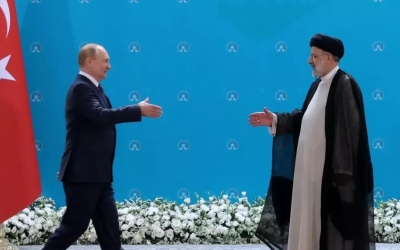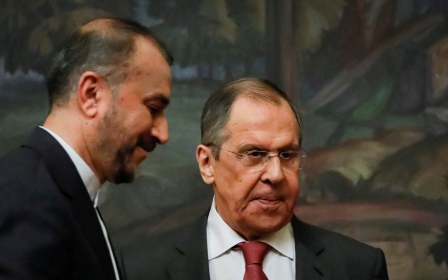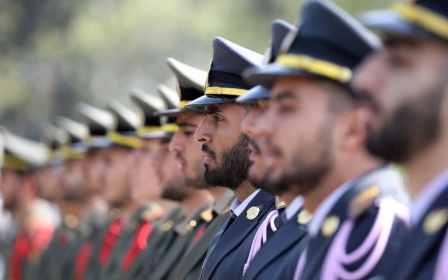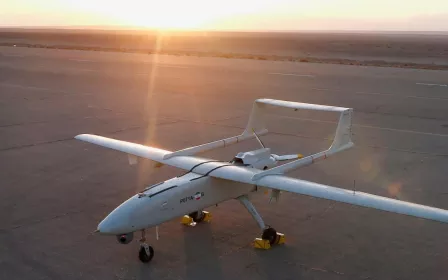Why isn't Russia stepping up to confront Israel?
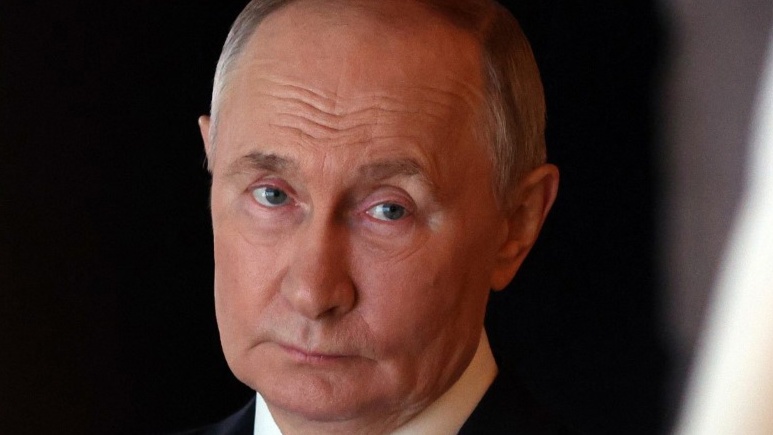
After the 7 October Hamas attack on Israel, western analysts and media promoted the notion that Russia was attempting to exploit Tel Aviv’s confrontation with the Iranian-backed axis of resistance in order to undermine western support for Ukraine.
Amid unconfirmed reports of Moscow’s military and intelligence assistance to Hamas and Hezbollah, an image of an anti-Israel Russian strategy emerged.
A closer look at Russian actions in the region, however, reveals that this perspective is unfounded, and that Moscow has embraced an appeasement strategy in response to Israel’s aggressive regional behaviour.
This appeasement strategy has led Israel to stop viewing Russia as a deterrent force in the region, and to take a harder line in its war against Iran and the axis of resistance. Tel Aviv thus expanded its fight with Hamas into a conflict with Iran and the pursuit of a new regional order.
Russia has hesitated to take meaningful, even low-cost, measures against Israel, despite publicly denouncing some of its actions.
New MEE newsletter: Jerusalem Dispatch
Sign up to get the latest insights and analysis on Israel-Palestine, alongside Turkey Unpacked and other MEE newsletters
Instead of criticising Israel’s strike on the Iranian consulate in Syria, which killed several senior Iranian commanders, Russia could potentially have issued an advance warning of the imminent strike, so that only an empty building was targeted.
The consulate attack marked the beginning of a direct conflict between Iran and Israel, notwithstanding allegations that Russia has aided the Houthis in Yemen as the group targeted Israel and disrupted Red Sea shipping.
Realms of influence
Despite Iran incurring significant political and economic costs through its military aid to Russia in the Ukraine conflict, Russia merely warned Israel not to strike Iran’s nuclear facilities as tensions between the latter two soared following back-and-forth attacks. The latest Israeli strikes reportedly destroyed Iran’s S-300 air defence systems, which it had purchased from Russia.
Yet, despite the ongoing threat posed by Israel, Russia has yet to begin transferring additional weapons to Iran, including fighter jets and advanced defence systems. Moreover, Russia and post-Soviet republics in Central Asia seem to be dissuading Iran from launching reprisals against Israeli targets, while suppressing anti-Israel acts.
Follow Middle East Eye's live coverage of the Israel-Palestine war
Since the outbreak of the Russia-Ukraine war, these states have been more assertive in their foreign policy, seeking new sources of funding and technology with more independence - and Israel is one of their primary alternatives.
Israeli experts see Central Asian states as a new realm of influence for Israel, which promotes the alleged historical origins of their peaceful coexistence.
Russia has exhibited passivity towards Washington's efforts to establish a new order in the Middle East via Israel
From a strategic perspective, however, Israel should be viewed as a Trojan horse of the United States - which, by strengthening its financial and technological foothold, could gradually drag these predominantly Muslim developing nations out of Russia’s orbit.
Russia’s policy of appeasement towards Israel disregards four key facts. Firstly, the US has broken the taboo of direct military action within the national territories of Russia and Iran via two proxy forces, Ukraine and Israel, while shielding Israel, and to a lesser extent Ukraine, from costly reprisals.
Secondly, Israel, acting as a proxy for the US, is attempting to establish a new Middle Eastern order that would curtail the regional prominence and roles of Iran and Russia. In this environment, it would not be unreasonable to expect Israeli or Ukrainian attacks on Russian forces in Syria.
Mutual vulnerability
Thirdly, Israel’s direct assaults on Iranian military installations and armament depots effectively diminish Iran’s capacity to assist Russia in the Ukraine conflict, thus amplifying the mutual vulnerability of both nations.
Finally, Israel sees Russia as an ally of its adversary and a potential threat, since it supports Iran and groups such as Hamas, Hezbollah and the Houthis. The large Russian diaspora in Israel is becoming more critical of Russia and can no longer be viewed as a political asset or soft power tool for Moscow.
Overall, the political, economic and diplomatic clout that Russia previously possessed has diminished, and its foreign policy is beset with serious challenges and ambiguities.
One of the unavoidable consequences of this decline is Moscow’s appeasement strategy. Russia cannot fully and successfully support Iran and the axis of resistance, when it needs to foster crucial political and economic ties with countries such as Saudi Arabia, the UAE, Turkey and Azerbaijan, aiming to avoid a predicament where these nations are aligned with Israel on one side, against Iran and Russia on the other.
At the same time, it is hard to believe that Russia could regain its prestige and influence in this region, and be seen as a trustworthy great power, by taking advantage of short-term political and economic opportunities.
Despite Russia’s justifications for the necessity to reform the global and regional orders, it has exhibited passivity towards Washington’s efforts to establish a new order in the Middle East via Israel.
The issue is not the absence of Russia’s support for Iran and the axis of resistance; it is the lack of stringent norms in Russian foreign policy for assessing Israel’s regional assaults, including civilian killings, targeted assassinations and cross-border bombings, with no constraints or boundaries.
The views expressed in this article belong to the author and do not necessarily reflect the editorial policy of Middle East Eye.
Middle East Eye delivers independent and unrivalled coverage and analysis of the Middle East, North Africa and beyond. To learn more about republishing this content and the associated fees, please fill out this form. More about MEE can be found here.



